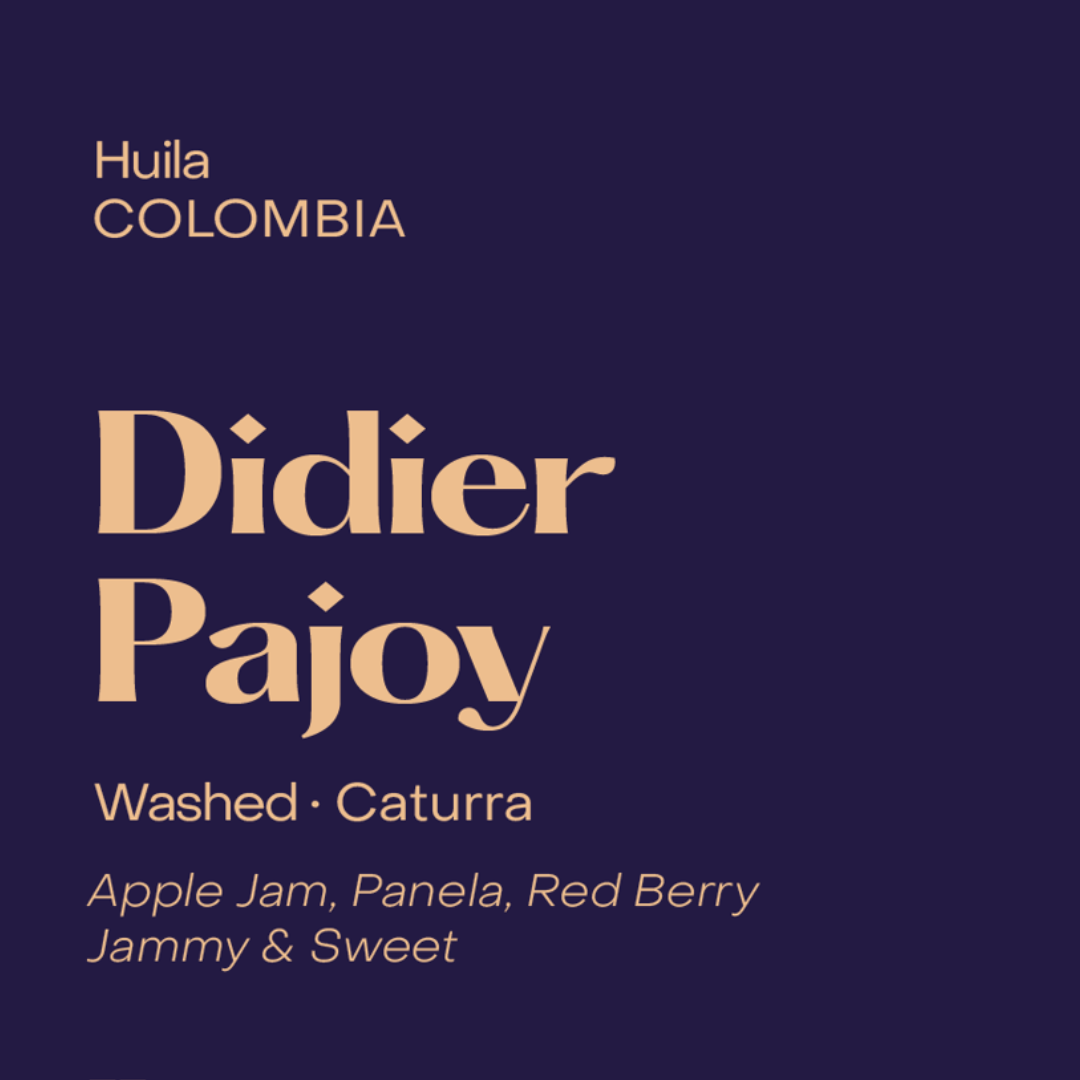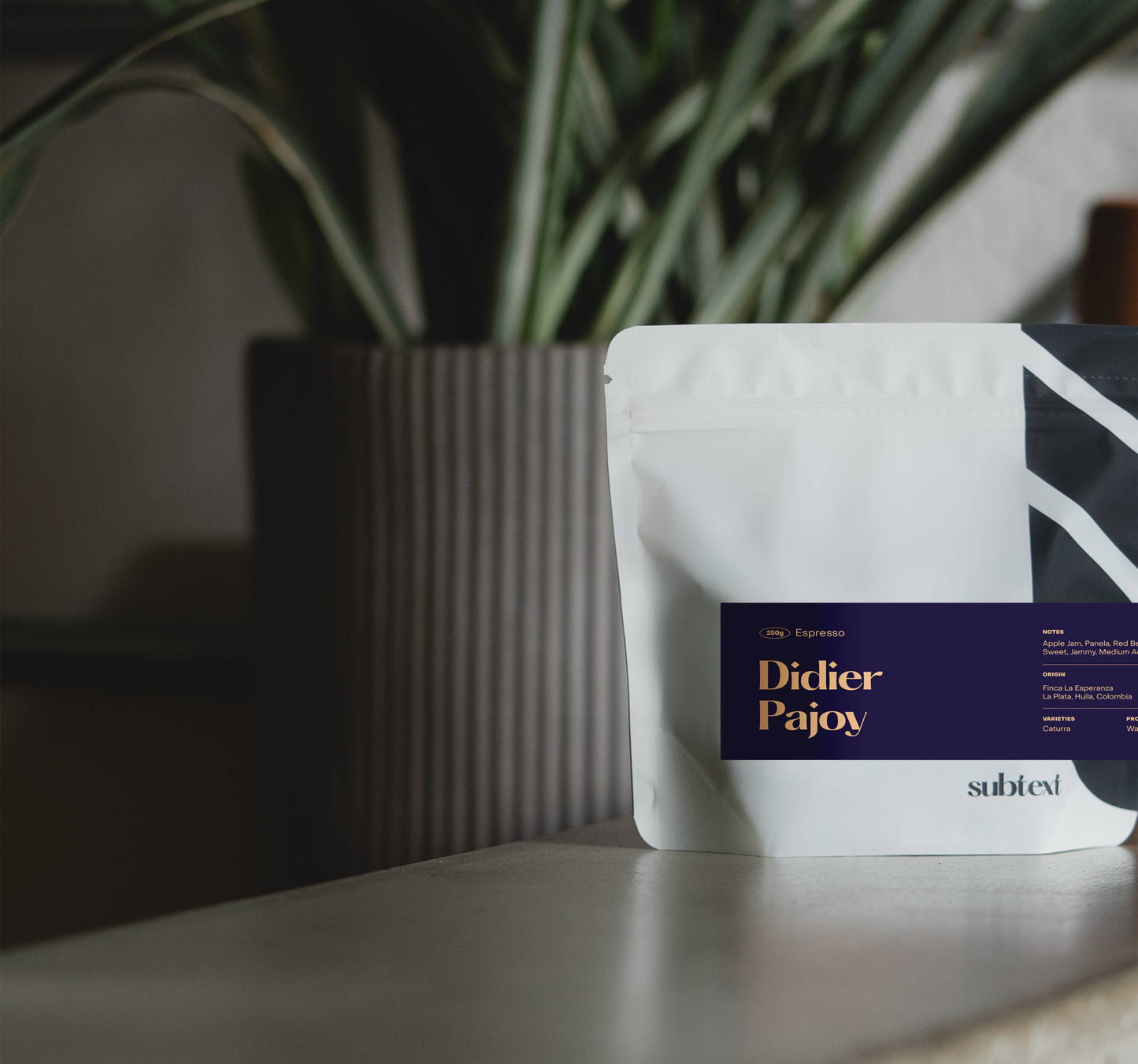Subtext Coffee Roasters
SUBTEXT - Didier Pajoy Espresso | Colombia - Washed - Caturra
SUBTEXT - Didier Pajoy Espresso | Colombia - Washed - Caturra
 Origin: Colombia
Origin: Colombia
 Tasting Notes: Apple Jam, Panela, Red Berry
Tasting Notes: Apple Jam, Panela, Red Berry
 Process: Washed
Process: Washed
 Varieties: Caturra
Varieties: Caturra
 Producer: Didier Pajoy
Producer: Didier Pajoy
 Farm: Finca La Esperanza
Farm: Finca La Esperanza
 Region: La Plata, Huila
Region: La Plata, Huila
 Elevation: 1800 masl
Elevation: 1800 masl
 Harvest: Fall 2024
Harvest: Fall 2024
 Recommended Brew: Espresso
Recommended Brew: Espresso
 Roast Date:
Roast Date:
Couldn't load pickup availability
Subtext Coffee Roasters is located in Toronto, Canada
From SUBTEXT
We are thrilled to have coffee from Didier back on our menu this year. This season, we selected his washed Caturra for the espresso menu. Besides producing his own excellent coffee on his farm in La Plata, Huila, Didier is an integral part of the Osito Colombia team. He founded the Martir growers group, a collection of growers sharing knowledge of agriculture, processing, and export. The group has become known for quality output. He works closely with other producers in La Plata and San Agustin to assist them with processing and manages the Osito purchasing point in La Plata.
Of the many growing regions in Colombia, the mountainous department of Huila in the south west of the country grows the most coffee. Huila enjoys a wide diversity of micro-climates, temperatures, altitudes and coffee varieties. In fact, coffee is grown in 35 of Huila's 37 municipalities. All of this means that the coffee coming out of this region is as diverse as the variables that influence its production.
Caturra
A natural mutation of Bourbon, originally discovered in Brazil in the early 20th century; Caturra derives its name from the Guarani word for “small,” a reference to its diminutive stature that results from a single-gene mutation causing dwarfism. It was this small size- allowing for more trees to be planted closer together- that led to mass selections of Caturra being made by the Instituto Agronomico (IAC) of Sao Paulo State in Campinas in the 1930’s. Caturra then made its way to Guatemala during the 1940’s and then was widely adopted in the 1970’s by the rest of Central America, where it is now one of the most economically important varieties.
At high altitudes Caturra has strong quality and yield potential but unfortunately, is quite susceptible to disease.
Share





